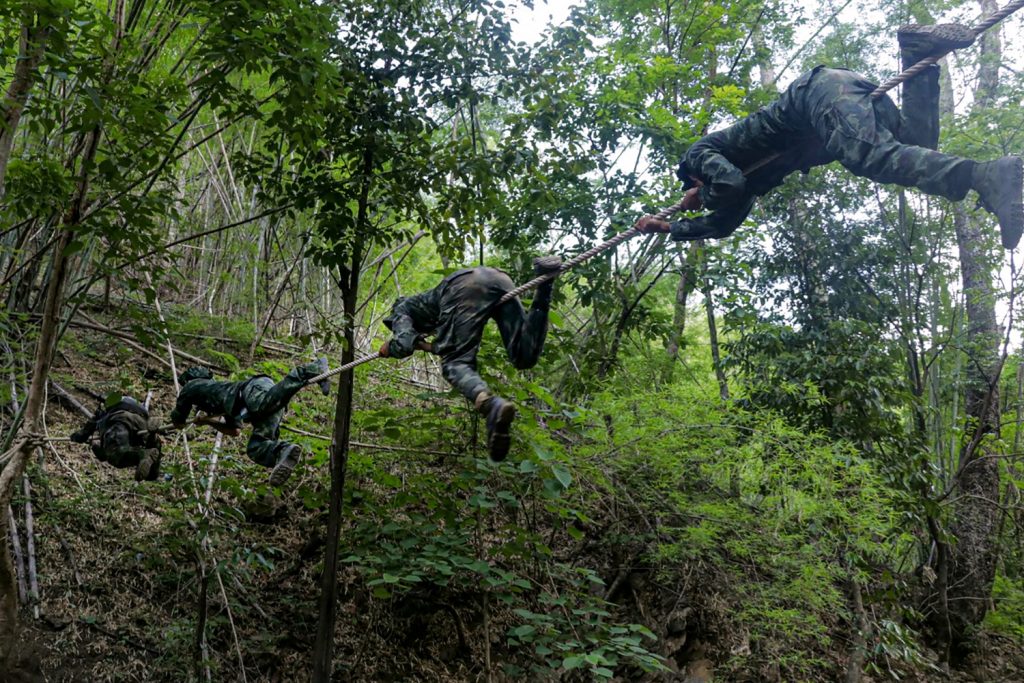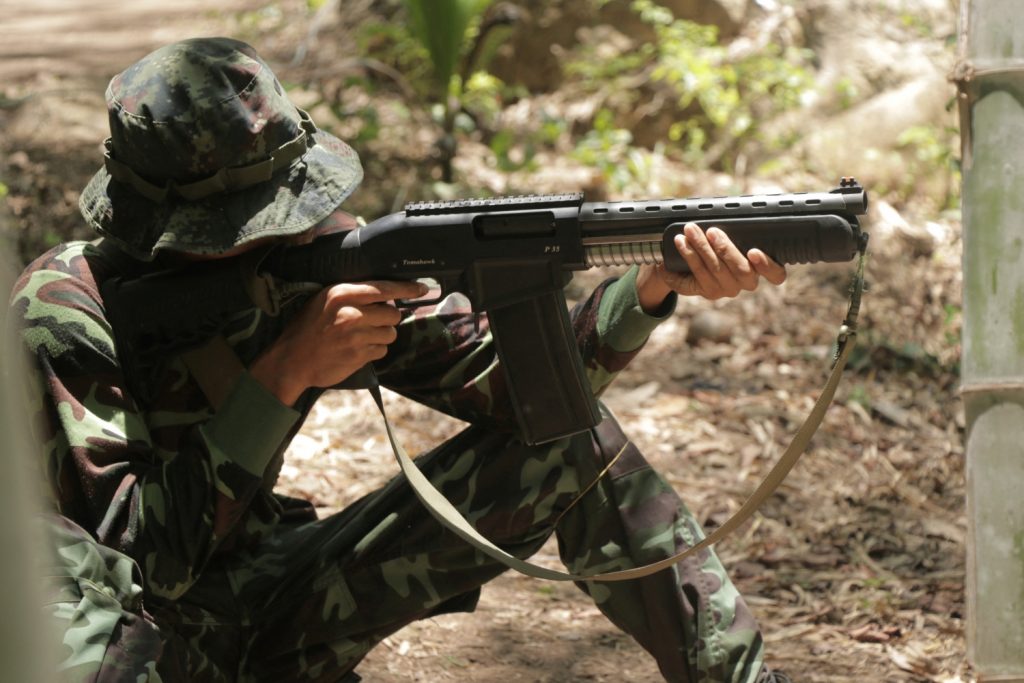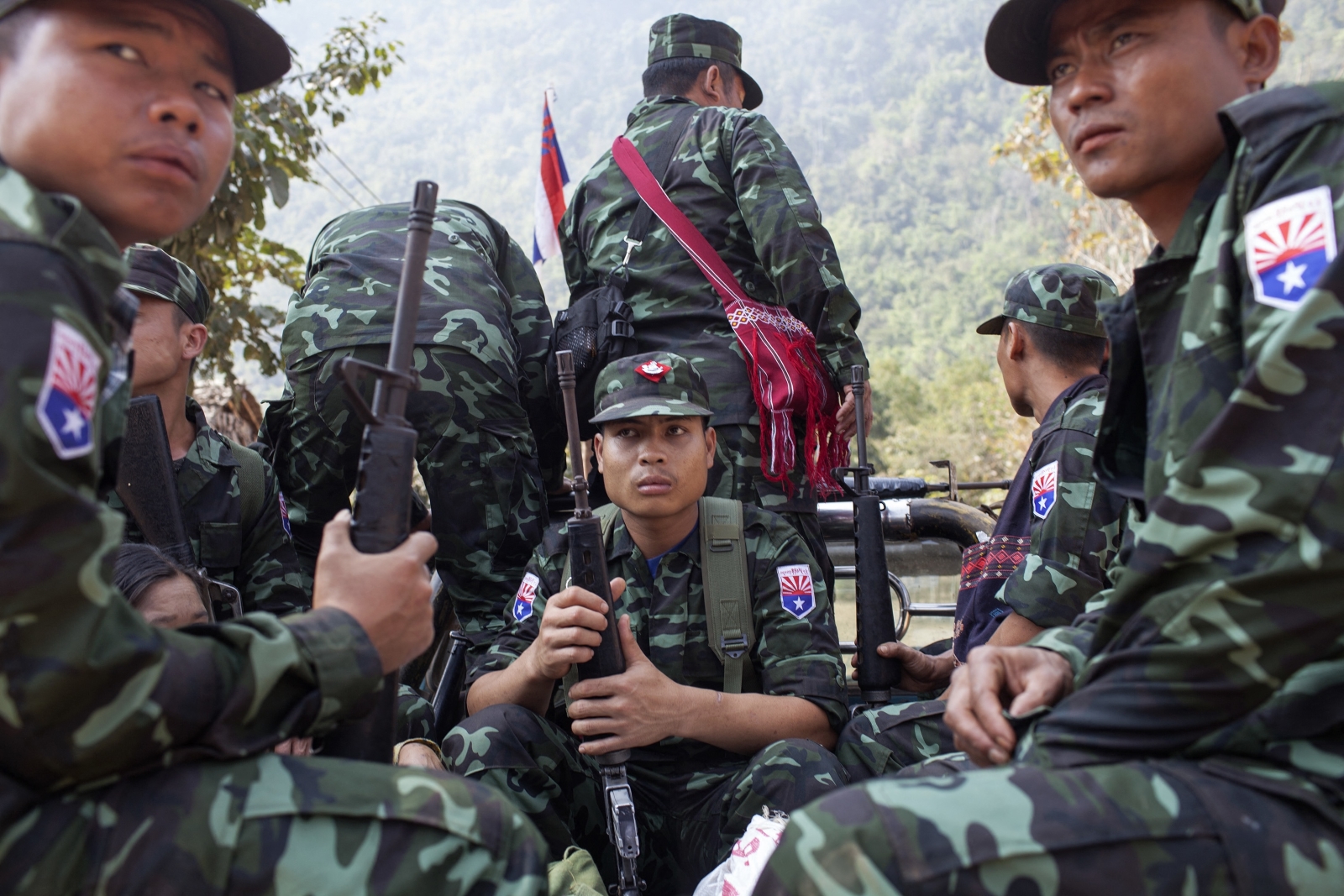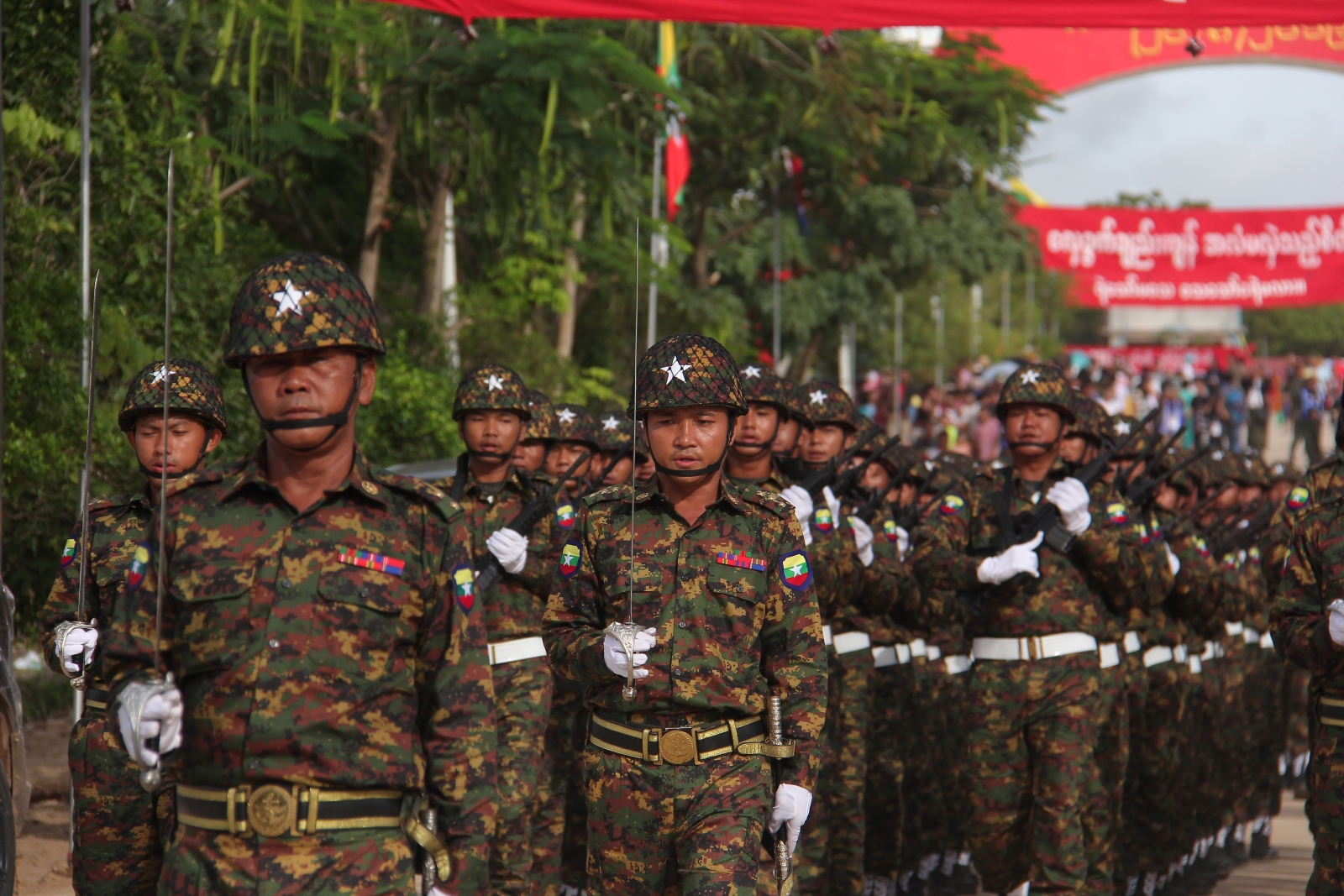By AFP
Nervous laughter breaks out in the jungle as a young man training to overthrow the junta is knocked backwards by the kick of a rifle he has just fired at a target painted on a tree.
Waiting behind him for their turn with the weapon are others who have fled the cities and reappeared in ethnic armed group-controlled territory, now training for combat against the military regime.
“We had never heard the sound of gunshots,” Ko Min (not his real name) told AFP at the training camp hidden in the thickly-forested hills of Kayin State along the border with Thailand in southeastern Myanmar.
But four months after the military ousted the civilian government and unleashed a brutal crackdown on dissent that has killed hundreds, the 23-year-old is now “very used” to their sound.
He has also been convinced of their power.
It is gunshots, not protests, that “will end the military dictatorship in our country,” he said.
Many anti-coup protesters share Min’s anger and resolve.
Reliable estimates are hard to come by but analysts suspect hundreds of people have trekked into insurgent-held areas to receive crash courses in combat.
Last month, celebrity beauty queen Htar Htar Htet posted a photo to Facebook showing her dressed in black combat fatigues and carrying an assault rifle.
“The time has come to fight back,” wrote the gymnastics instructor, who represented Myanmar in the first Miss Grand International beauty pageant in Thailand.
But the odds are stacked against them in any confrontation with one of Southeast Asia’s most battle-hardened and brutal militaries.
Myanmar’s armed forces have waged almost constant war against insurgent groups since the country’s independence from Britain in 1948.
An open fight is likely to end in a “bloodbath,” said David Mathieson, an analyst formerly based in the country.
Target practice
A day in the Karen boot camp starts before dawn.
Volunteers are trained in jungle tactics – crossing muddy streams by shimmying along a rope, taking cover in the undergrowth and carrying injured comrades to safety.
In their downtime they rest on wooden beds and gaze at their smartphones.
Their instructors are members of the Karen National Union, one of more than 20 ethnic armed groups across Myanmar that have an often fractious relationship with each other.
Some groups have condemned the coup and offered shelter to dissidents after the junta’s lethal crackdown on early mass protests in the cities.
The KNU has hosted boot camps in its stronghold along the Thai border, although a spokesperson declined to comment when asked by AFP how many protesters it had trained.

“All the sessions are very difficult but we are learning hard,” Min said.
Target practice takes place on a makeshift range, with enemy soldiers represented by a square of white paint.
Resources are limited, with volunteers wearing flip flops instead of combat boots.
One volunteer sits cross-legged and loads shells carefully into a magazine, the Arsenal football club badge on his shorts hinting at his abandoned civilian life.
‘Our bones and blood’
“I wanted to encourage the people who are still protesting against the military not to give up and to keep this revolution going,” Ma Khine (not her real name) told AFP at the camp.
“We will help you in some way and please keep your strength until we win.”
But analyst Mathieson questioned how effective rebel tactics born in the mountains and jungles would be when it comes to confronting the junta in towns and cities.
While the training “might be a maturing experience for you personally, it’s not going to transform you into an urban warfare operator,” he told AFP.
Short-term training was also unlikely to instil the discipline and toughness needed to go toe-to-toe with the military, he added.
“I think there will be a lot of hotheads and hormones,” Mathieson said. “It could be a recipe for chaos.”
In the hidden camp, the young protesters are nonetheless resolute.
“We will end the military dictatorship, root it out,” said Min.
“We have decided to give our lives, our bones and our blood for this, to finish them off.”







